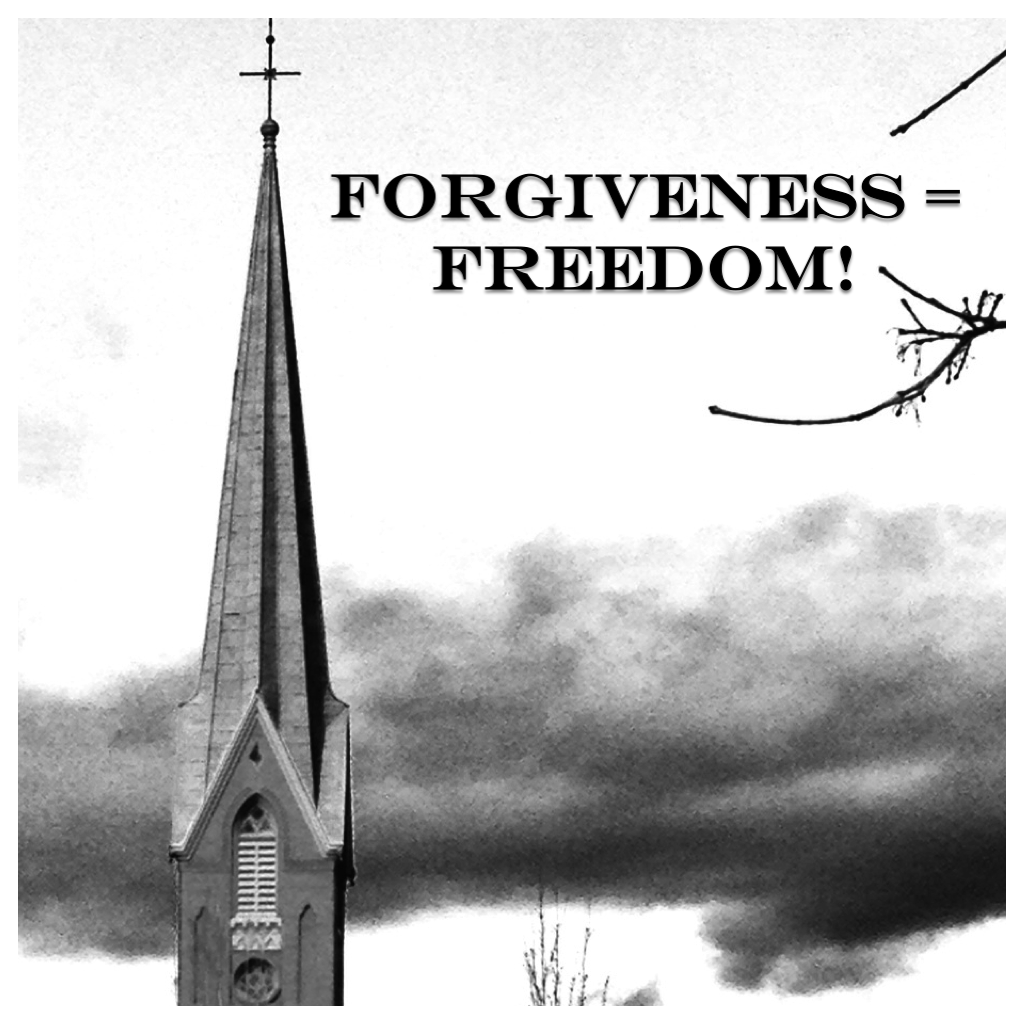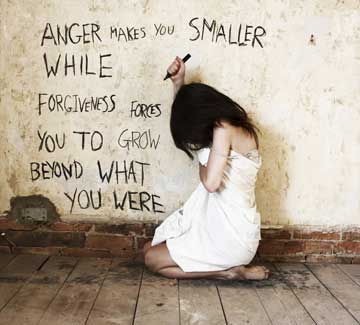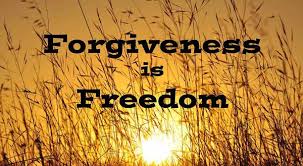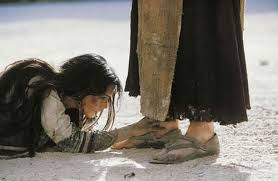 She was in my face and spitting fire!
She was in my face and spitting fire!
“Are you telling me I HAVE to forgive my ex-spouse? If so, that’s the dumbest thing I’ve ever heard in church or anywhere else! You have NO idea what that %#@*^ has done to me!”
Actually, I did have a pretty good idea of the abuse she’d suffered. It was tragic and heartbreaking. Nonetheless, I told her what I have learned from firsthand experience, “We forgive because we’ve been forgiven, and we forgive so that we can live free.”
Learning to forgive (yourself or others) is perhaps the single most important key to longterm health and happiness.
Jesus knew it would be hard, but He offered no wiggle room on this issue.
Peter came to Jesus and asked, “Lord, how many times shall I forgive my brother when he sins against me? Up to seven times?” Jesus answered, “I tell you, not seven times, but seventy-seven times.” Matthew 18:21-22
His point? Forgive and know that forgiveness has no limits.
 Why do we find it hard to forgive others and ourselves?
Why do we find it hard to forgive others and ourselves?
1. We don’t understand the depth and reality of God’s forgiveness for us.
In our gut we know sin requires judgment. Human beings have a God-given sense and awareness of the need for justice. That’s why we always root for the underdogs, especially when they’re in battle against evil. That’s why we demand punishment of law-breakers. In our heart, we know sin necessitates judgment.
So when God steps into our lives with His mercy, grace and forgiveness (and He only does so by our invitation by the way) something in us goes on tilt. Something in us worries that it’s just too easy and therefore too good to be true. It’s easier to pay penance than it is to fully accept God’s grace. And because we fail to understand or believe in His unmerited goodness, we all too often live as if we are still in debt and unforgiven.
But here’s what the Bible says, “If we confess our sins to him, God can be depended on to forgive us and to cleanse us from every wrong” 1 John 1:9 (TLB).
C.S. Lewis once said, “I think that if God forgives us, we might as well forgive ourselves. Otherwise, it is almost like setting ourselves up as a higher tribunal than God.”
Tragically, if we don’t understand the depth and reality of God’s forgiveness for us, and we don’t forgive ourselves—that wound is going to bleed over into our relationships with others. We won’t live free or love freely.
2. We listen too often to the voice of the “accuser.”
In Revelation 12, the Apostle John refers to Satan as the “accuser” and as one who accuses us before God night and day. He paints the picture of Satan attempting to point out our failures to God.
“Look at that one who calls himself a Christian! Look at his stupidity and sin!”
You don’t have to be a Christian very long to realize that the “voice” of our enemy often works against us and against our acceptance of God’s mercy.
• Satan is the “voice of despair” that tries to rob us of our peace and joy.
• He’s the one who tries to tell us that we’ll never change . . . that we’ll never get beyond the borders of our past . . . that the stain of our sin is too deep and too dark to ever really be completely washed away.
• He’s the voice of doubt that tries to cause us to question the goodness of God.
 That’s why I love the scene in John 8 of the woman caught in the very act of adultery. Dragged before Jesus, she is condemned by her fellow citizens to die, and yet, as her accusers vanish one by one, it says in John 8:8-10: Jesus stood up again and said to her, “Where are your accusers? Didn’t even one of them condemn you?” “No, sir,” she said. And Jesus said, “Neither do I. Go and sin no more.”
That’s why I love the scene in John 8 of the woman caught in the very act of adultery. Dragged before Jesus, she is condemned by her fellow citizens to die, and yet, as her accusers vanish one by one, it says in John 8:8-10: Jesus stood up again and said to her, “Where are your accusers? Didn’t even one of them condemn you?” “No, sir,” she said. And Jesus said, “Neither do I. Go and sin no more.”
This vividly demonstrates that God is for us, not against us. We must learn to turn off the voice of the accuser and listen only to the voice of truth—the voice of our Father who is not mad at us, but mad about us!
There are certainly other significant and tragic reasons why we find it hard to forgive, but these two must be dealt with if we are to live free:
• You must know and embrace the depths of God’s forgiveness in your life for it is the key to softening your heart toward others.
• You must learn how to recognize the lies that come against you from the pit of hell.
Yup . . . forgiveness is hard. Learning to walk in a lifestyle of forgiveness isn’t for the faint of heart, but it is the secret to your heart’s healing. (Click to Tweet)
By the way, my friend and bestselling author, Ted Dekker, recently released a book called Water Walker and the theme is forgiveness! Here’s the link for a free episode of this incredible book: http://www.theoutlawchronicles.com/download
May I pray for you?
“Father, teach us to forgive as we have been forgiven. Help us to learn to recognize Your voice above our own self-talk, the voices of others, and the voice of the enemy. Continually overwhelm us with the epicness of Your grace in our lives. Cause our lives to be marked by Your mercy in such a powerful way that others see You in us and are drawn to Your grace. Amen.”


